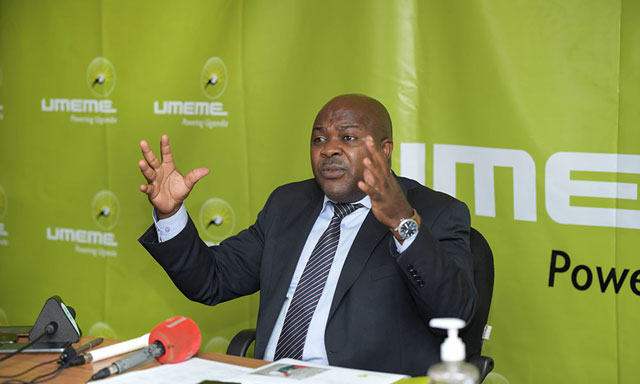
Kampala, Uganda | THE INDEPENDENT | Schools and other learning institutions have a one-year grace period to clear their outstanding bills, thanks to a decision by electricity distributor, Umeme. The education sector has been arguably the hardest hit by the effects of the COVID-19 pandemic and containment measures against it, having been closed for almost two academic years.
A few have attempted to remain operational by conducting online classes, but on the opposite end, some proprietors have had to close down and sell off the school premises altogether or convert them into other businesses. Umeme did not disclose how many schools are to benefit from this move, but the institutions owe Umeme up to Shillings 5billion.
Umeme Managing Director Celestino Babungi, says that almost all the schools that use the post-paid systems have arrears in varying periods over the two years. “Some tried paying in the earlier days, but later also stopped because of the financial stress they have been going through. And we had to leave them,” said Babungi on Monday.
He says they hope that with the economy expected to fully open up, the institutions will be able to recover.
Other institutions that Babungi said are being given relief are in entertainment places because they have also been affected citing an entertainment company in Ntinda, which has outstanding bills worth Shillings 19million. These and other institutional consumers will be handled on a case-by-case basis according to the director.
Babungi was explaining the challenges that the company and the electricity distribution sector generally, has gone through over the year characterized by economic lockdowns. One major challenge was vandalism of the network, which is not only a cost to Umeme but also disrupts service delivery in form of supply instability.
Umeme reports having lost 85km of cable lines as well as 35 transformers among other equipment. The practice does not only affect Umeme or distribution companies but other utilities including roads and railway infrastructure.
Babungi said that in order to tackle vandalism, the government and its security agencies must work to identify and kill the market for the stolen equipment, which is reportedly the scrap recycling steel and iron industry.
Umeme wants the government to ensure that new power projects are commissioned soon before demand outstrips supply. Alongside other smaller hydropower projects, Karuma is expected to go live by June 2022. This will bring the total installed capacity to about 1,900 megawatts from the current 1,280 megawatts.
Currently, less than 900megawatts are generated. Umeme says that the highest demand level this year was between 700 and 800 MW, and it is getting concerned that with the full re-opening of the economy, demand will go beyond 800MW, and this might force the government to revert to the expensive thermal electricity.
Demand by large factories grew by 11 percent this year, while commercial and SME demand rose by 12 percent. There was also a six percent growth in domestic consumption. In terms of geographical consumption, Babungi said Entebbe is the fastest-growing area hence the decision to build there a substation.
He also pointed out areas like Naalya-Mukono-Kayunga that are growing into a conurbation and industrializing fast, which will very soon require a higher electricity supply. But Umeme and the government are also focused on the connection of 220,000 households which applied for electricity for as long as two years ago under the Electricity Connectivity program.
These are yet to be connected. Umeme needs Shillings 224 billion to clear this backlog according to Babungi.
On future investments, the Umeme MD hopes that the next year will see the resumption of the concession renewal talks so that the uncertainty can be resolved three years to the end.
This will help them acquire new capital for investment. He however says that the company will continue investing even before the talks end because theirs are long-term investments.
*****
URN
 The Independent Uganda: You get the Truth we Pay the Price
The Independent Uganda: You get the Truth we Pay the Price





